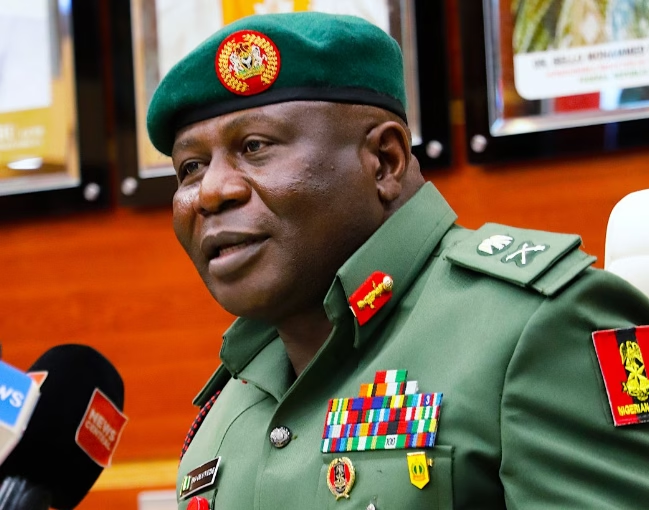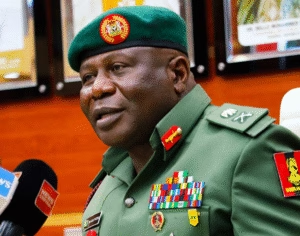Nigeria’s military leadership has announced a sweeping reorganization of top-ranking officers, signaling a strategic shift amid ongoing security challenges. Lt.-Gen. Olufemi Oluyede, the Chief of Army Staff, approved the redeployment of dozens of senior personnel to critical command and administrative roles, according to a Sunday statement by Acting Army Spokesperson Lt.-Col. Appolonia Anele.
The reshuffle spans key operational and institutional branches, including the Army Headquarters, regional command divisions, and training institutions. Among the most prominent appointments are Maj.-Gen. Adekunle Adeyinka as Chief of Logistics, Maj.-Gen. A.A. Adekeye as Chief of Personnel Management, and Maj.-Gen. T.B. Ugiagbe as Chief of Standards and Evaluation. Maj.-Gen. A.A. Idris assumes leadership of Military Intelligence, while Maj.-Gen. M.O. Erebulu takes charge as Provost Marshal, responsible for discipline enforcement.
Regional commands saw notable changes, with Maj.-Gen. A.S.M. Wase named General Officer Commanding (GOC) of the 1 Division, overseeing Operation FANSAN YAMMA in northwestern Nigeria, and Maj.-Gen. C.R. Nnebeife appointed GOC of the 2 Division, managing security operations in the southwest. The restructuring also included international assignments, such as Maj.-Gen. S.A. Akesode’s posting to lead the African Union Verification Mission in Ethiopia’s Tigray region.
Training institutions gained new leadership, including Maj.-Gen. M.O. Ihanuwaze as Commandant of the Nigerian Army Finance School and Maj.-Gen. A.J. Aliyu heading the Ordnance School. Brigade-level changes featured Brig.-Gen. M. Jimoh assuming command of the 1 Brigade and Brig.-Gen. A.A. Bello leading counter-insurgency efforts in the oil-rich Niger Delta under Operation DELTA SAFE.
In remarks relayed by Anele, Gen. Oluyede urged the appointees to intensify efforts against terrorism, insurgency, and emerging threats while emphasizing improved welfare for frontline troops. The reorganization follows heightened security operations nationwide, including clashes with armed groups in the northeast and separatist tensions in the southeast.
Analysts note the moves reflect efforts to optimize leadership in strategic sectors, from logistics to intelligence, amid persistent challenges. The Nigerian military continues to grapple with multiple security crises, including Islamist militant activity, communal violence, and piracy, drawing increased scrutiny over operational effectiveness. While the reshuffle’s immediate impact remains uncertain, it underscores the Army’s focus on rotational command structures to maintain operational readiness and adapt to evolving threats.





